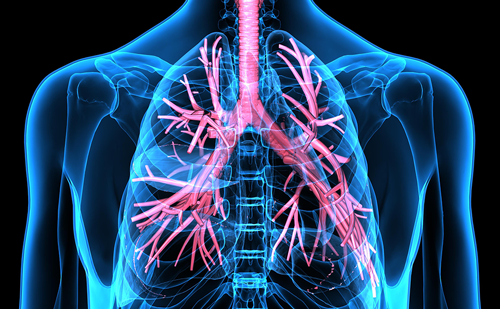The easing of coronavirus disease-2019 (COVID-19) restrictions has raised concerns for people who are ineligible for the vaccine for medical reasons. Tixagevimab and cilgavimab (Evusheld, AstraZeneca, Cambridge, UK), a combination of two long-acting antibodies, is a potential alternative to vaccination and offers hope to these patients. In an expert interview, Professor Hugh Montgomery gives us an overview of the new combination therapy and its potential.
Q. Could you give us a brief overview of the tixagevimab and cilgavimab combination and clinical evidence in support of its use for pre-exposure prophylaxis of COVID-19?
The immune response to virus involves antibodies that recognize viral components and stick to them, marking them for destruction. A good immune response requires the production of antibodies; however, it takes time to develop the antibody response and clear the virus, by which time it could have caused considerable cell damage and a pro-inflammatory state, resulting in illness. Vaccines prime the immune system to produce antibodies that bind to the part of the virus (the spike protein) that attaches to the cell to gain entry. However, about 2% of the population, for example those with cancer receiving chemotherapy or those with rheumatological disease, chronic liver or kidney disease, and chronic lymphocytic anaemia, have illnesses that may prevent them from mounting an immune response. Vaccines may thus not be effective in these individuals, leaving them vulnerable to severe illness and death if infected with the SARS-CoV-2 virus. To protect such patients, AstraZeneca have developed a combination of two human antibodies, each of which binds to a different part of the spike protein. This offers synergistic protection, but also helps defend against viral mutation: if one antibody becomes less effective, the other should stiill work well.
Other combinations are in development, but the AstraZeneca product has a lot of strengths. First, the side-effect profile is similar to that of placebo. It is also quick and easy to administer as an intramuscular injection, and it appears to be highly effective and long lasting.
Several trials have been conducted for dual monoclonal antibodies. The tixagevimab and cilgavimab combination has been evaluated in several clinical scenarios, starting with severely ill people and working back through the onset of symptoms, then to when people are exposed to the virus and finally as pre-exposure prophylaxis (i.e. as a vaccine alternative). The PROVENT clinical trial (Phase III double-blind, placebo-controlled study of AZD7442 for pre-exposure prophylaxis of COVID-19 in adult; ClinicalTrials,gov identifier: NCT04625725) was conducted at 87 sites in several countries, and comprised 5,172 individuals who were screened for infection at baseline and randomly assigned to the active drug or placebo.1,2 More than three-quarters of the study population had comorbidities that put them at increased risk and reduced the vaccine immune response. The primary safety outcome was occurrence of adverse events. Efficacy outcome was polymerase chain reaction-proven symptomatic COVID-19 and serious COVID-19. Adverse event rates were similar in the placebo and active treatment groups, and the risk of contracting COVID-19 was reduced by 77%.2 There were no cases of severe COVID-19 or COVID-19-related deaths in those treated with the antibodies. In those receiving placebo, there were three cases of severe COVID-19, which included two deaths.
Q. What is the current regulatory status of the therapy?
Approvals are appearing around the world based on the submissions that have been made. An emergency use authorization was made in the USA on 8 December 2021.3 This allowed the therapy to be used for people who had previously had an allergy or an adverse reaction to the vaccine, and also in people likely to have an inadequate immune response to the vaccine, as described above. It has been approved for use in Egypt and there is a rolling review process in Europe. It has been submitted for approval in the UK and I am hoping for approval in the coming weeks.
Q. Could you comment on recent data on efficacy against the Omicron variant?
The mutation status of the virus is a great concern. However, in vitro studies indicate that the mutations found in the Omicron variant have no detrimental effect on the efficacy of the therapy.4 We do not have clinical data as it is not feasible to run a new clinical trial each time the virus mutates, but the in vitro study data are convincing.
Q. What will be the impact of these findings on future use of this combination and of antibody therapy in general?
I anticipate that this therapy will be widely used in populations at risk of an impaired vaccine response. The lifting of restrictions is good news for the majority of people, but further imprisons those who are vulnerable. I hope to see good market penetration to give these people their freedom. It is yet to be seen whether the use of these agents will spread further into early secondary prevention or treatment, and we do not yet know whether they would be effective in those settings in addition to vaccines. We see people who are not aware that they have had a poor vaccine response and become very unwell with COVID-19. These patients may benefit from being given this combination.
There are wider implications for antibody therapy in general, which have taken off in the past few years, thanks to advances in the design and manufacture of monoclonal antibodies. We now see routine use of monoclonal antibodies in cancer, rheumatological diseases and as therapeutic agents against respiratory infections. I expect we will see a burgeoning market for monoclonal antibodies, with more diverse applications for other infectious diseases.








